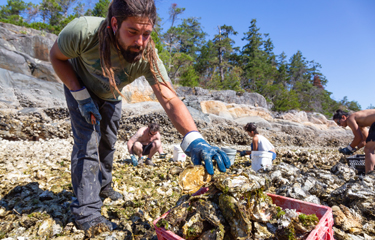The British Columbia Ministry of Agriculture and Genome is funding three projects to enhance the province’s ability to identify norovirus and vibrio parahaemolyticus strains in an attempt to reduce shellfish-related food poisoning, according to a press release from Genome BC.
Noroviruses are a contagious virus which are a common cause of non-bacterial acute gastroenteritis, and vibrio parahaemolyticus is a bacteria that occurs naturally in marine environments which causes gastroenteritis as well. The pathogens can be transmitted to humans whether the shellfish are uncooked or not.
In recent years, oysters contaminated with the two contagions have caused severe gastrointestinal illness outbreaks and the hope is that the projects will aid in reducing outbreak frequency and severity, as well as improve the options for industry shareholders when an outbreak does occur.
In particular, the projects hope to reduce the number of outbreaks by identifying norovirus and vibrio parahaemolyticus at an earlier stage, which will aid in improving response to the outbreak. They will also aim to identify the source, dispersal methods, and persistence of norovirus in British Columbia’s leading oyster production area, Baynes Sound.
“British Columbia oyster farmers work hard so people can enjoy our seafood locally and around the world, and multi-agency partnerships and research will help that continue,” British Columbia Agriculture Minister Lana Popham said. “Provincial investments in re-seeding efforts, and research to ensure harvested seafood can be enjoyed safely are key elements to supporting stability in the province’s oyster aquaculture sector.”
British Columbia’s shellfish industry relies heavily on oysters, which make up about half of the industry, valued at some USD 23 million (EUR 20.7 million). Currently, outbreaks are managed by shutting down oyster farms, which detrimentally affects famers and other industry stakeholders, Genome BC President and CEO Pascal Spothelfer said.
“This investment is an important step forward in ensuring that BC oysters are safe for human consumption and that oyster farming in BC is better protected,” Spothelfer said. “BC’s seafood industry and government agencies are direct partners on this project so implementation will be swift and significant.”
Photo courtesy of EB Adventure Photography/Shutterstock






